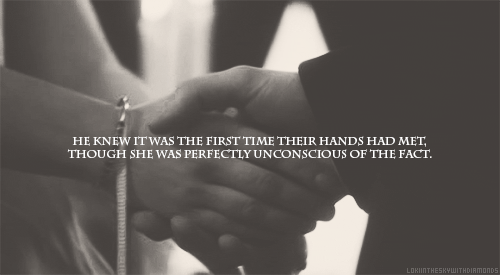For many months now, I have thought it a big lack in my knowledge of classics never to have read anything by the Brontë Sisters. However, I didn't want to make the obvious choice by starting with Jane Eyre, so I decided to read Wuthering Heights instead.
I had no idea what the novel was about, and I thought it would be fun to read it without any preconceived ideas.
Now, even if I had known the plot, I don't think it could have prepared me for the tremendous shock it was reading it.
I'm not quite sure how it happens, but by some morbid coincidence I, who love happy endings, often end up being attracted to stories where almost all of the characters die (and no - it is not a spoiler, you kind of figure it out 20 pages into the book. The same place where you realise, there is absolutely no possibility for this story to end happily).
To summarise the plot is easy. The orphan Heathcliff is taken in to a family, where he befriends and falls in love with the daughter Catherine, but is treated vilely by her brother. When Catherine marries her rich neighbour, he leaves for a while, and when he comes back, he swears to get revenge on everyone who have ever been against him.
It all sounds pretty straightforward, but let me tell you - it is not. Mainly because of the narrating style. The story actually takes place after the plot has played out, when a newcomer to the village, is puzzled by Heathcliff, and then is told the whole story by his housekeeper, who was a close spectator. While that gives a wide perspective on the plot, it also prevents the reader from ever knowing what the characters actually think, and therefore makes it impossible to know precisely why they act as they do.
And talking about the characters... I don't even remember if I have ever disliked a character, much less a main character, as much as I dislike Heathcliff. Sure, I felt a little sorry for him at first, but when he started that whole vendetta thing, he was lost to me. He is just plain evil, manipulative, rude, resentful and I could go on plastering negative adjectives on him, but I think you get the picture. I don't like him.
I don't like Catherine either. She is a spoiled, selfish brat, who thinks nothing of the feelings of others. And the whole love story between her and Heathcliff was just wrong. I know they are considered one of the most iconic couples in classic literature, but I feel they are more a study in the wrong kind of love and how destructive that can be.
I mean, two who truly love each other would never act as they did. Their love was selfish and possessive and made them destroy each other and everything around them. True love would make you want to be a better person, and do everything in your power to see your loved one happy, even if it meant making sacrifices yourself. And that was definitely not what their kind of love made them do.
But then again, in my opinion the true love story of the book never happened between Catherine and Heathcliff, but between two of the next generation.
(big spoilers ahead)
As part of Heathcliff's revenge he takes over the house which Hareton would have inherited upon his fathers death, and makes sure that Hareton is treated just as vile as Heathcliff himself was as a child, just making sure that he doesn't even know that. And Cathy is the sheltered girl brought up at a nearby estate. So they mostly have the same background and conditions in life as Catherine & Heathcliff did.
And so the scene is set for the whole story to repeat itself - only it doesn't.
For when Hareton gets to know Cathy, and she laughs at him and actually treats him quite cruel, he doesn't get bitter and resentful. On the contrary, he tries to improve himself, doing everything in his power to get her to respect him. And though they don't find each other until the very end, I think that is the true love story.
To me it's like they get the happy ending that Heathcliff & Catherine didn't get.
Because they don't let what's happened in the past ruin their future.
Okay, I got a little carried away there, but I really like the symbolism of it all, so I tend to just ramble on about it.
That ending convinced me that it wasn't entirely wasted to read the book.
Other than that it is one of the darkest stories I have read in along time. I mean it's like a Gothic romance - just without the romance part (if that makes any sense).
And no, I am not discouraged from my purpose of reading more works of the Brontë sisters, but I probably need a little break before starting on the next one.










